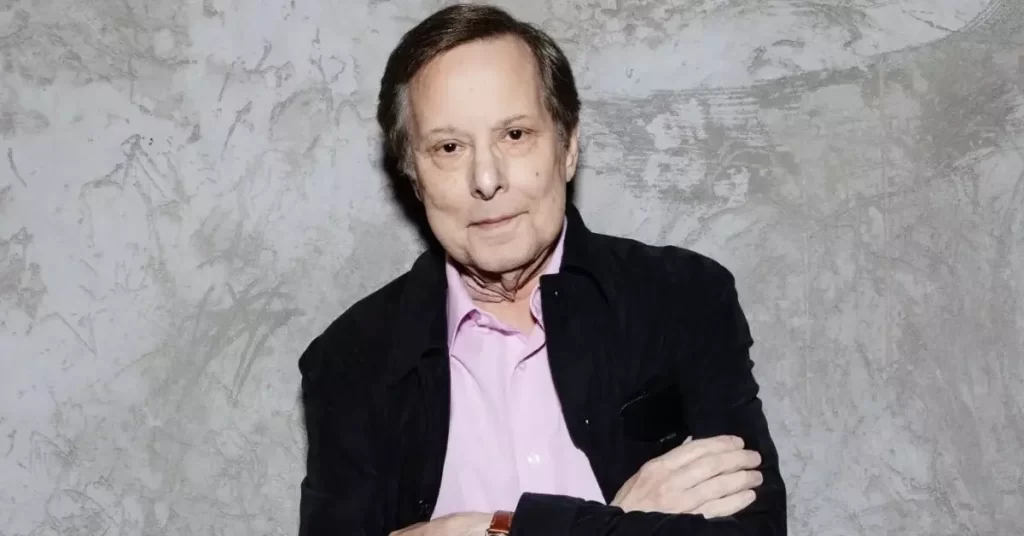William Friedkin, Oscar Winning Director of ‘French Connection’ and ‘The Exorcist,’ Departs at 87
Acclaimed Oscar Winning director William Friedkin, renowned for his iconic 1971 masterpiece “The French Connection” and the chilling 1973 horror classic “The Exorcist,” has passed away at the age of 87. The film making legend breathed his last on Monday in Los Angeles, leaving behind a legacy that reshaped the cinematic landscape.
The sad news was confirmed by Stephen Galloway, a close associate of Friedkin’s wife, former studio executive Sherry Lansing, and the dean of Chapman University’s film school. Friedkin’s recent demise comes amidst his ongoing work on his final project, “The Caine Mutiny Court-Martial,” featuring Kiefer Sutherland in the role of Phillip Queeg. The highly anticipated film is set to premiere at the upcoming Venice International Film Festival in September.
William Friedkin was an enigmatic trailblazer, standing as a key figure in the transformative wave of directors during the 1970s. This era saw the emergence of visionaries like Peter Bogdanovich, Francis Ford Coppola, and Hal Ashby, who collectively revolutionized the art of film making.
“The French Connection,” a riveting narrative inspired by actual events, chronicles the relentless pursuit of Frenchman Fernando Rey, the brains behind a vast heroin smuggling operation into the U.S. One of its standout moments is an adrenaline-pumping chase scene between a car and a commuter train, daringly shot on the bustling streets of New York City without formal authorization. This cinematic triumph not only earned Friedkin the prestigious Academy Award for Best Director, but also clinched honors for Best Picture, Screenplay, and Film Editing. Critics hailed Friedkin, then a youthful 32, as a pioneering luminary of his generation.
Following this triumph, Friedkin delivered an even more monumental hit with “The Exorcist,” an adaptation of William Peter Blatty’s bestselling novel depicting the possession of a 12-year-old girl by malevolent forces. The spine-chilling sequences of the girl’s torment, coupled with stellar performances by Linda Blair, Ellen Burstyn, Max Von Sydow, and Jason Miller, propelled the film to staggering box-office success. Such was its impact that audiences fled theaters and some even experienced sleepless nights due to its visceral fright.
While “The Exorcist” is remembered for its terrifying set pieces – the head-spinning, levitation, and vomiting – Friedkin emphasized that the film encompassed deeper themes. In a 2013 interview, he clarified, “It was not a promotion for the Catholic Church but definitely a story about the power of Christ and the mystery of faith that continues to this day.” He expressed appreciation for the admiration, but resisted the label of ‘horror’ for his creation.
The film’s prowess resonated with the Academy, receiving 10 Oscar nominations and securing two wins, for Blatty’s screenplay and for sound design. Armed with this triumph, Friedkin embarked on a journey that spanned decades, helming movies and television productions well into the 21st century. However, he never quite replicated the monumental success of his early masterpieces.
The news of Friedkin’s demise elicited heartfelt tributes from within the entertainment industry. Actor Elijah Wood paid homage on social media, describing Friedkin as “a true cinematic master whose influence will continue to extend forever.” Noted horror producer Jason Blum, of Blumhouse Productions, acknowledged his debt to Friedkin for transforming horror film making and its societal perception. Esteemed director Guillermo del Toro lamented the loss of a cinematic deity and a cherished friend.
Among Friedkin’s diverse filmography are titles like “To Live and Die in L.A.,” “Cruising,” “Rules of Engagement,” and a TV adaptation of the revered play and Sidney Lumet’s film “12 Angry Men.” Additionally, he contributed his expertise to television series like “The Twilight Zone,” “Rebel Highway,” and “CSI: Crime Scene Investigation.”
William Friedkin’s departure marks the end of an era in cinema, leaving behind an indelible imprint on the art form. His courage to venture into uncharted territory, his knack for storytelling, and his ability to evoke profound emotions through film will forever be etched in the annals of movie history. As the world mourns his loss, his legacy will undoubtedly continue to inspire generations of filmmakers and movie enthusiasts, ensuring that his influence endures.



